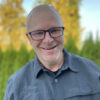The Power of Meekness
A College hockey team I coached went on an exhibition tour of an Eastern European country. For the most part, we got completely clobbered. My great guys, teeming with testosterone, were not to be confused with the height of Canadian ice superiority.
As part of the tour, we visited an orphanage where these boisterous young men transformed before my eyes. The precious, abandoned babies and toddlers in that home were coddled and played with by twenty-year-olds. The tough competitors were suddenly tender warriors holding the vulnerable in their strong hands.
“Blessed are the meek, for they will inherit the earth.” Matthew 5:5
The Difference Between Meekness and Weakness
Jesus is forming a company of ambassadors – representatives and agents of another world in this one. He describes them as enviable and happy because they are meek. Further in Matthew, he describes himself by this term as he invites us to learn his ways: “Take my yoke upon you and learn from me, for I am gentle and humble in heart, and you will find rest for your souls” (Matthew 11:29 – the word “gentle” is the same Greek word – praus – as “meek” in Matthew 5:5, just translated with a different nuance).
What is this meekness of which he speaks? Its sounds like weakness, doesn’t it? And, how will ambassadors of meekness ever make a discernable difference in the world? Don’t we need more who aggressively crash the corners and put the earth in its place?
Counter-culturally, Jesus is elevating not bravado, but the harnessed strength of those who hold the vulnerable. “Meekness,” as Jesus speaks it, is as far from weakness as my hockey team was from the Stanley Cup. Praus refers to the exercising of great strength – God’s power – under great control – God’s control. It is power without abuse, authority without harshness, influence without demanding rights.
A God-Harnessed Life
Moses’ life began mucking like a goon in the corners of a cold arena. He had a passion for justice and even killed justifiably. Moses was a strong soldier, but he needed harnessing. He needed true power – God’s power. This is what he learned in confessing his weakness, before a burning bush, and in depending entirely on God’s Word in the courts of Pharaoh.
David learned this too. His bravery before Goliath and popularity before the people needed to be harnessed by God. His passion for the kingdom of Israel, his struggle with Saul the flailing king all needed to become meek: anointed authority surrendered to utter dependence on God. David needed that meekness the Spirit of God alone forms: a humility and lowliness that becomes transformative power.
When Jesus calls the blessed “meek,” he is referencing King David in Psalm 37. There David says do not fret, trust the LORD and do good, commit your way to the LORD, be still before the LORD, refrain from anger and, essentially, be harnessed by God’s Word and promises.
Meekness is not weakness, but a God-harnessed life when all around is shaking, and you just want to act. David writes, “But the meek will inherit the land and enjoy peace and prosperity (Psalm 37:11). It is this perspective, this strong, surrendered life under the control of God, that Jesus calls his ambassadors to. Of them, Dietrich Bonhoeffer says, “…they are meek, they renounce every right of their own…” and theirs is the earth. It is to such as these – these blessed and enviable ones – that God entrusts his purposes of peace and shalom to on earth.
Meekness is not weakness, but a God-harnessed life when all around is shaking, and you just want to act.
Think Before You Act
Slow down and consider. Where am I moved to passionate action? Where am I ready to exert my strength for even a most well-intentioned good? Then ask, am I harnessed to true power as I go there? Am I acting like Moses before his training in the wilderness? Or, am I learning the lessons of the meek King, fully surrendered to God’s power and harnessed by his Word precisely because the earth is a violent and violated mess? Am I holding the vulnerability and brokenness of the world in truly strong hands?
As an ambassador of Christ, our inherited authority is not in our rights but in leaving our rights to God alone. This meekness reveals we are from somewhere else; that we come as ambassadors carrying a citizenship that is not of this world, but immensely powerful in it.
As an ambassador of Christ, our inherited authority is not in our rights but in leaving our rights to God alone.
About


